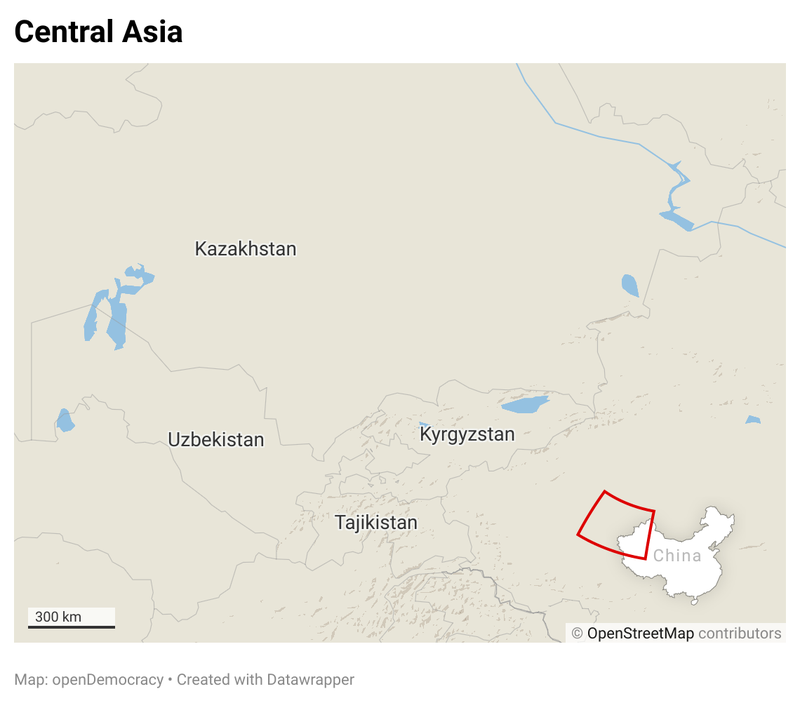
From the moment they push the Chinese lion door knob to enter, children at Bishkek’s school No. 95 leave Kyrgyzstan and enter a little slice of China.
All of the signs and posters feature Chinese symbols, quotes by the Chinese philosopher Confucius are framed next to those by Kyrgyz poets, and all of the appliances have been made in China – from lights to fire extinguishers, security cameras and sport supplies.
In Kyrgyzstan, the state school system is funded by the education ministry. However, donations from local and foreign entities determine how well-equipped and modern these institutions are.
“The Chinese government financed the construction of our school in 2017, on the condition that we encourage Chinese language teaching,” said Azhar Imanalieva, deputy director of foreign languages at the school, as she gave me a tour in flawless Chinese. “The Chinese Embassy and the Confucius Institute supplied all the resources, like computers, interactive boards, and a lot of books.”
A voice in global affairs
Confucius Institutes provides public educational partnerships between schools and universities in China and schools and universities in other countries. The stated aim of the programme is to promote Chinese language and culture, support local Chinese teaching internationally and facilitate cultural exchanges. However, the organisation has been criticised over concerns of the Chinese government’s undue overseas influence and suppression of academic freedom.
Walking around the school, located in the south-west of Kyrgyzstan’s capital, Bishkek, provided plenty of visual stimulus thanks to an array of bright red ornaments gifted by the Chinese ambassador that managed to overshadow the orange furniture.
“Parents have chosen this school because we offer Chinese language classes to young children,” Azhar explained. “From fifth grade, Chinese language classes are free and compulsory, but from second grade we are already providing opt-in, fee-paying classes for those who want a good foundation. About 80% of our pupils enroll early.”
China’s soft power agenda in Kyrgyzstan is betting on the next generation. “There is a plan to station one Chinese language teacher in every primary school in Kyrgyzstan,” said Wang Tong-chuang, a Chinese businessman familiar with the work of the Chinese embassy in Bishkek. Since the summer of 2019, Confucius Institutes in Kyrgyzstan have sent Chinese teachers to even the most remote corners of the country, the southwestern Batken region.
Over time, the Chinese Communist Party has found that Chinese language promotion is the most effective way of encouraging a Chinese voice in global affairs. Economic engagement worked only at the elite level, to incentivise rent-seeking political elites to adopt China’s stance in global affairs.